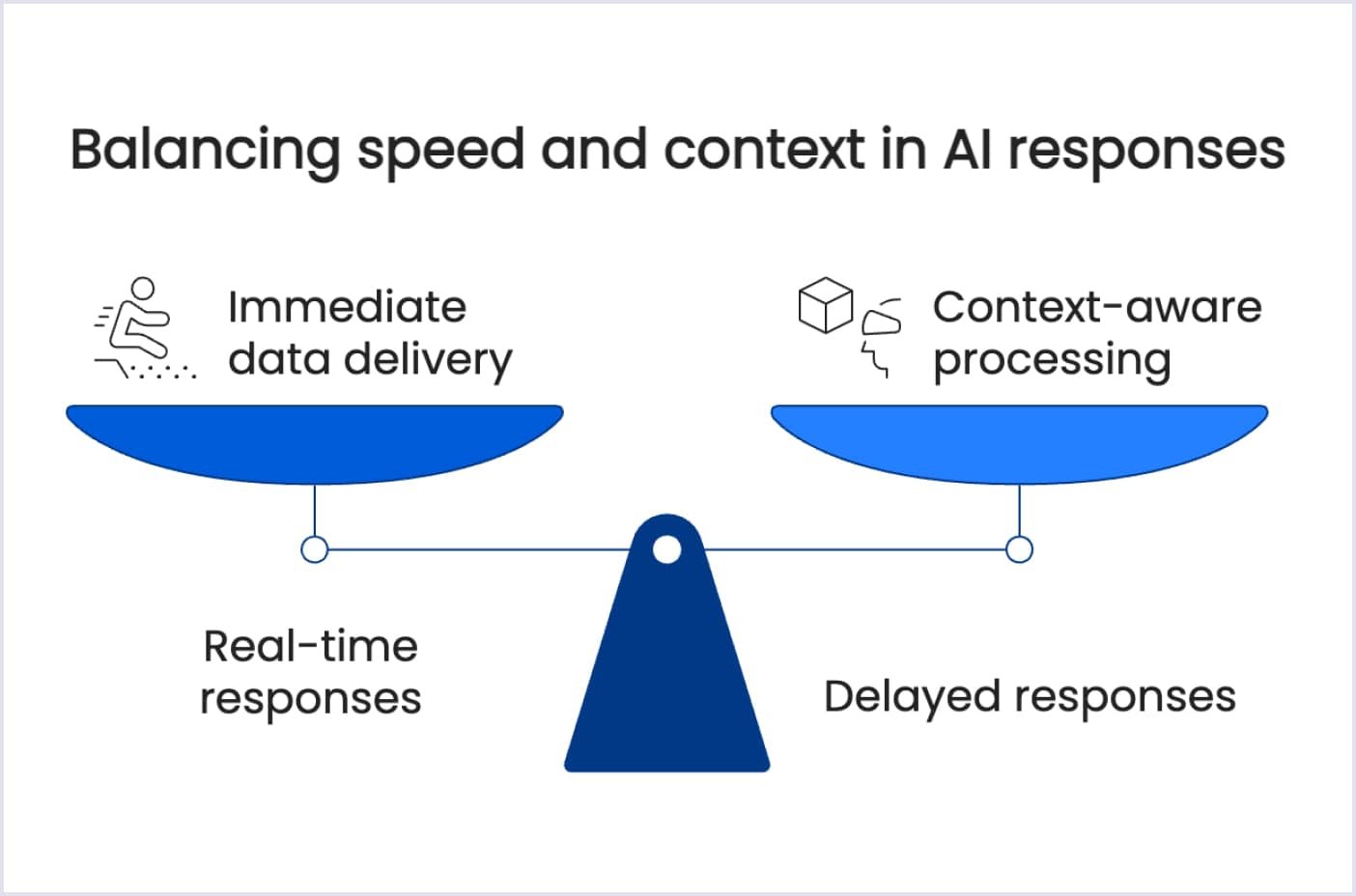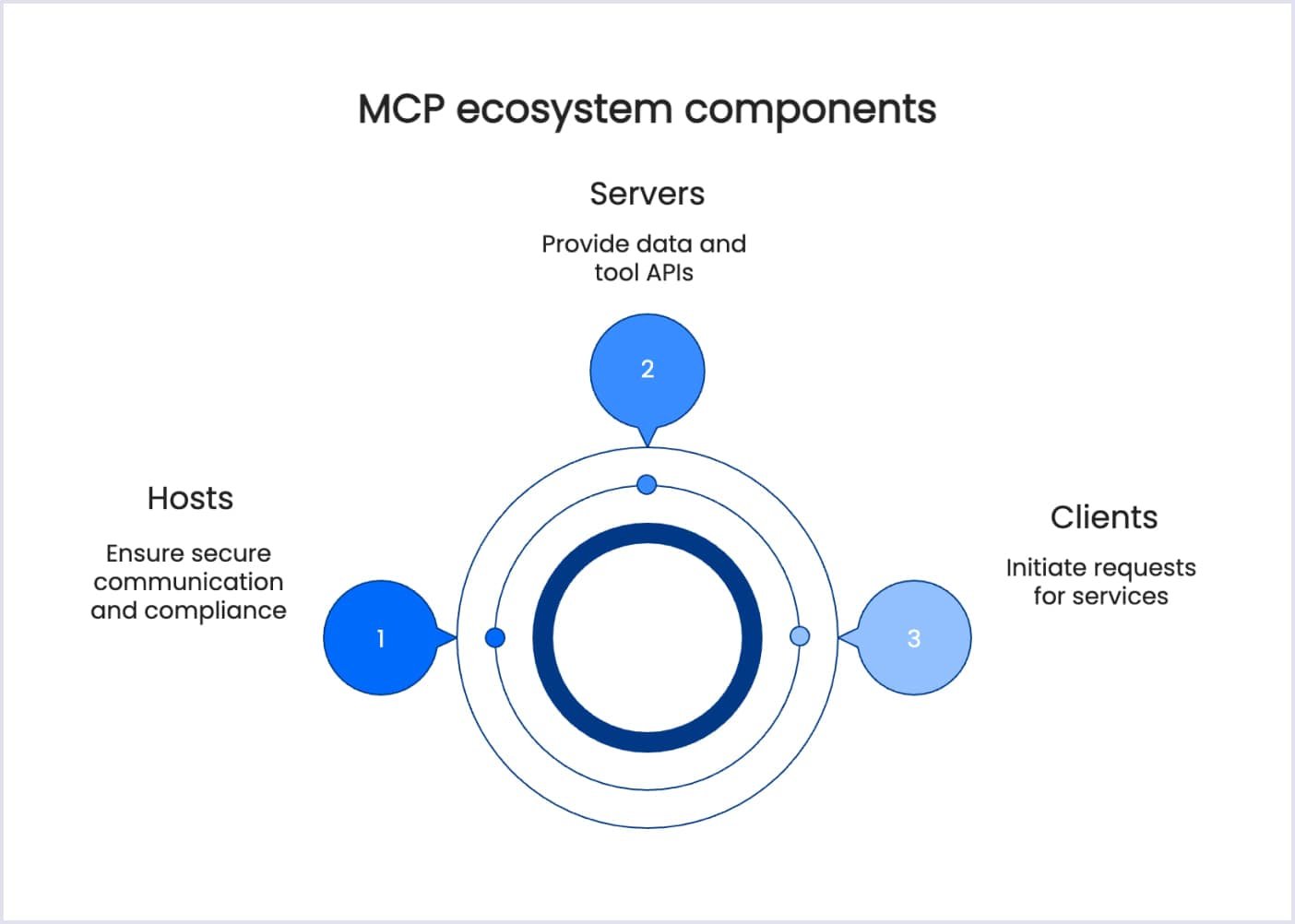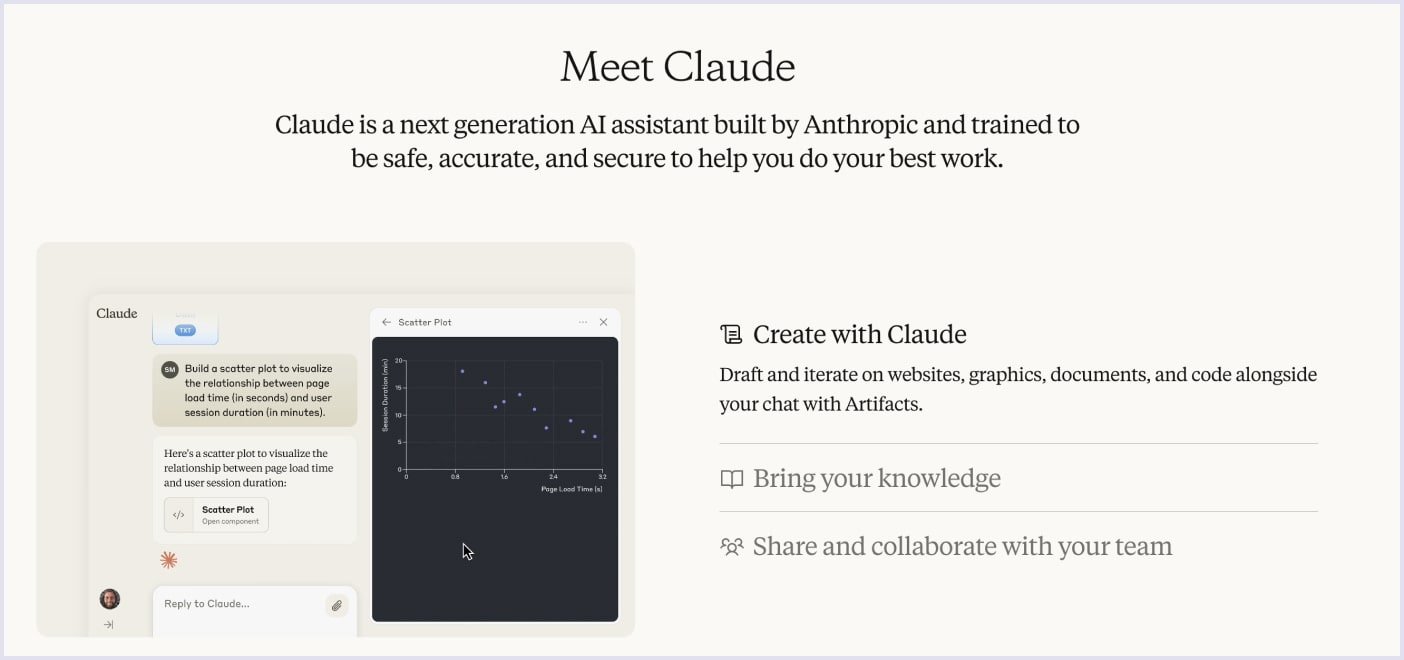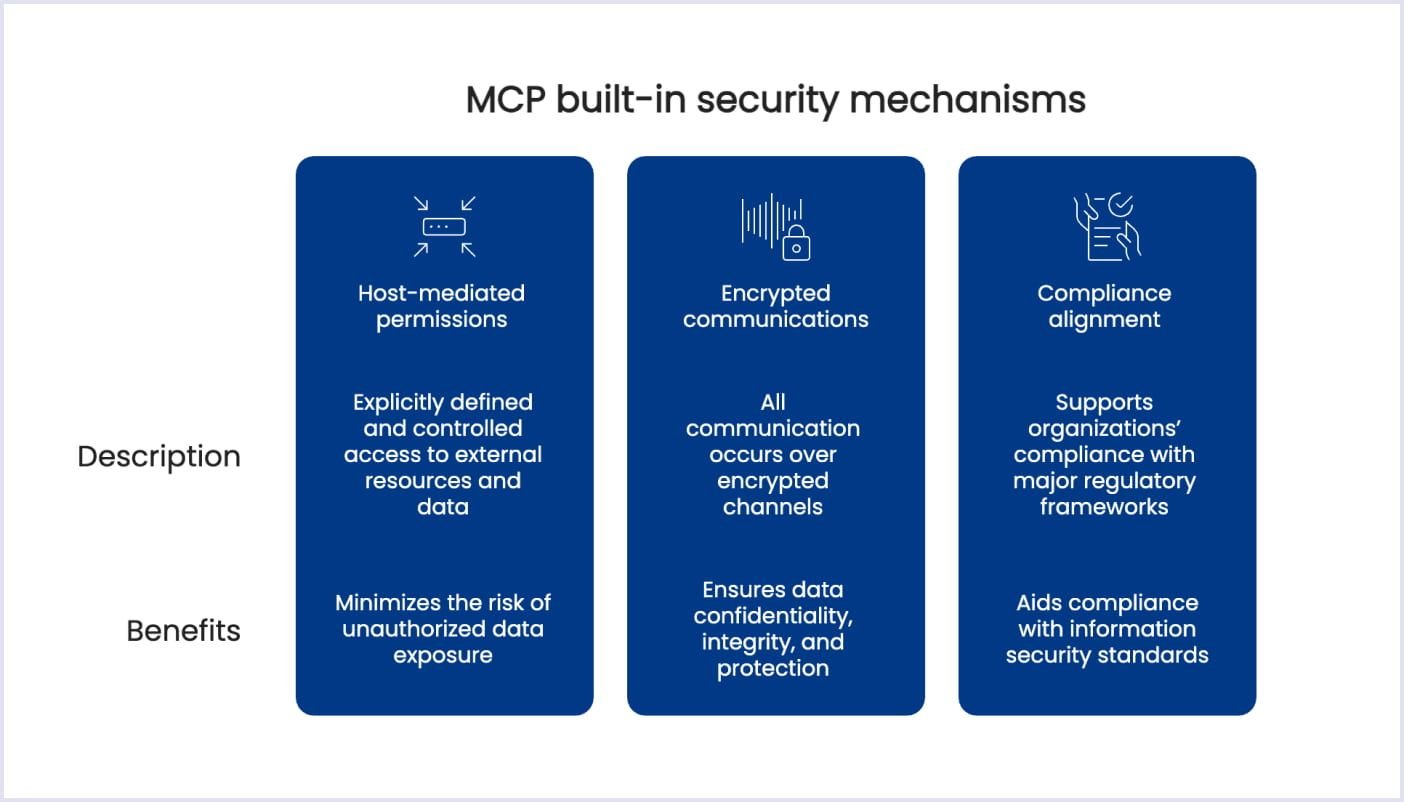As AI agents get more advanced, their ability to share and make use of contextual memory is vital to achieve cohesive, collaborative performance. Currently, AI agents usually work within isolated memory frameworks. This limits their effectiveness and adaptability for coordinated problem-solving.
Yet, MCP exists as a new standard to negate these limitations. In this article, we’ll provide an overview of MCP in greater detail, highlighting its benefits, implementation, real-world examples and security concerns.
Understanding the Model Context Protocol
Let’s begin with the definition. MCP, although it sounds difficult, is simply an open standard AI protocol developed by the company called Anthropic. These are the same people who brought us Claude.
In essence, MCP gives AI agents a consistent way to connect with tools, services, and data, regardless of their architecture or development specifics. Thus, MCP solves common issues where AI systems usually operate separately, limiting their ability to interact effectively.
With a clear client-server design, MCP streamlines the process for AI agents to request, receive, and use information. With these clear communication standards, different AI tools can work together seamlessly.
The architecture of MCP
MCP uses a simple and robust client-server model. It is designed specifically for smooth interactions between AI agents and external resources.
In this structure, clients (AI applications) request data from servers, which provide these resources. Communication follows standardized methods, making room for both real-time and delayed responses.

This architecture makes MCP ideal for quick and context-aware AI responses. It simplifies MCP integration with other AI tools, all to boost their effectiveness across platforms.
Key components: Clients, servers, and hosts
In the MCP ecosystem, there are three key components that define its operational roles:
- Clients. These are AI-driven applications or agents that initiate requests for data, context, or computational services. Clients use MCP to dynamically integrate external resources into their workflows.
- Servers. These act as data or tool providers. They fulfill client requests by exposing structured APIs and context-rich responses compliant with MCP standards.
- Hosts. Following the name, they work as intermediaries. Hosts manage secure communication, enforce permissions, and ensure compliance with data privacy and security standards. They are essential for safeguarding interactions, verifying client-server authenticity, and maintaining operational integrity throughout AI agent interactions.

Benefits of MCP for AI agent memory sharing
Thanks to persistent memory and context-aware interactions, MCP can significantly enhance an AI agent’s capabilities. Hence, let’s review the two core benefits.
Persistent memory across sessions
Persistent AI memory is perhaps one of MCP’s most transformative features. This basically allows artificial intelligence agents (even in many sessions) to remember context and operate with past interactions.
Even simpler, with MCP, an artificial intelligence agent doesn't have to start from nothing every interaction. Rather, it searches and works with memories. This offers continuity and personalization missing from generic artificial intelligence tools.
Seamless tool and data integration
The second major benefit is that the MCP standardizes interfaces and interactions between AI agents and tons of external tools or datasets. This drastically reduces integration complexity.
All thanks to clear MCP communication protocols, AI developers and SaaS providers can effortlessly connect their applications to various resources, from knowledge bases and CRMs to coding environments and analytics platforms.
This plug-and-play lowers development overhead, increases the efficiency of AI agents, speeds time-to-market, and gives AI agents more general, more all-encompassing power.
Implementing MCP in your SaaS or marketplace startup
At this point, it’s clear that integrating MCP into your startup is a beneficial venture. Thus, let’s switch to a clear, actionable guide on how to integrate it.
Setting up MCP servers and clients
To start, your business may already have resources, be it proprietary datasets, analytical tools, or AI-driven applications. So, you will need to identify which of this data should be accessible via MCP.
Create specialized MCP servers using standard API endpoints to securely expose these resources. For scalability and flexibility, use containerized infrastructure (Docker, Kubernetes) or cloud-based platforms (Amazon, Azure, or GCP).
Once servers are up and running, configure MCP clients within your apps or user-facing interfaces. Users should automatically discover and connect to available MCP resources. Furthermore, define specific permissions carefully to ensure secure, controlled interactions between MCP clients and servers.
Leveraging SDKs and open-source resources
You can use plenty of existing software development kits (SDKs) to simplify the MCP implementation workflow. Widely used languages like Python, JavaScript, and C# have dedicated MCP SDKs designed to simplify integration, handle authentication, and manage client-server interactions seamlessly.
For instance, JavaScript can speed up frontend development, C# has enterprise-level solutions to offer, and Python SDKs are great if you’re looking to quickly integrate complex AI models into your product.
You can also look through open-source repositories. They frequently offer helpful resources that can speed up your integration process, such as templates, code snippets, and best practices.

Real-world applications and case studies
The Model Context Protocol has been adopted by a variety of developer platforms. By standardizing how AI models interact with tools and data, MCP enables more intelligent, context-aware assistance across various development environments.
Enhancing developer tools with MCP
AgenticFlow is a solid example of a platform utilizing MCP to its maximum. Essentially, it’s a no-code AI platform that helps users create agents to work with sales, creative tasks, and marketing. As a result, MCP allows AgenticFlow to let users connect over 2000 APIs and nearly 10,000 tools securely.
For another example, it’s worth looking into Claude Code. It’s an intuitive coding tool built by Anthropic. Its primary use is to speed up coding by using natural language commands. In addition to serving as an MCP server to integrate with other clients, it facilitates MCP integration for tools and prompts.

Source: Claude.ai
Besides, Claude has a desktop application that’s currently the only one that supports MCP features, with its introduction to the web to be released sometime in the future. It enables deep integration with local tools and data sources. As such, it provides:
- Complete support for resources, attached local files and data;
- Support of timely templates;
- Integrating tools to run scripts and commands;
- Local server connections for security and privacy.
Streamlining enterprise workflows
In addition to improving coding, MCP can assist enterprise AI solutions in providing a thorough understanding and navigation of the codebase. Cody, Sourcegraph's AI assistant, is designed to accomplish this.
MCP enables Cody to access and analyze entire code repositories, providing developers with precise code navigation, refactoring suggestions, and documentation generation. This deep integration streamlines workflows and facilitates better collaboration among development teams.
Security and compliance considerations
As soon as MCP gained widespread adoption among development platforms, its built-in security measures became a discussion topic too. However, MCP is designed to mitigate all security risks associated with integrating new AI tools.
Built-in security mechanisms in MCP
Host-mediated permissions
MCP uses a host-managed permissions model that limits AI models' access to external resources and data. Permissions can be specifically tailored, enabling platform hosts to control what data an AI can access, change, or interact with. This approach reduces the chances of unauthorized data access and prevents accidental or harmful interactions.
Encrypted communications
MCP requires that all communications among AI agents, tools, and data sources happen over encrypted channels (such as HTTPS, TLS). This end-to-end encryption guarantees that data is confidential and is completely protected from interception and tampering. Furthermore, this standard wonderfully aligns MCP-driven interactions with the best practices in the industry.
Compliance alignment
MCP standard also supports organizations’ compliance with major regulatory frameworks and industry standards, particularly:
- Data protection regulations (GDPR, CCPA). By reducing unnecessary data exposure, MCP's strong access control and encrypted communications enable developers to follow data protection requirements.
- Industry security standards (ISO 27001, SOC 2). Platforms integrating MCP benefit from its security-first design, aiding compliance with information security standards and facilitating certification processes.
- Policies for enterprise security. MCP's permission model guarantees fine-grained control that guarantees organizations to properly apply internal security policies over their AI toolchains.

MCP’s inherent security mechanisms, such as host-mediated permissions and encrypted communications, significantly strengthen the safety of secure AI integrations. MCP not only facilitates smarter AI interactions but also ensures these advancements occur securely and responsibly.
Bottom line
To wrap things up, MCP is an irreplaceable addition to whatever AI product you have. Its appearance has pretty much changed the rules of the game in the market, becoming a new standard. At Codica, we realize the potential as well.
Our custom software development services are often linked with AI, giving us enough expertise and experience to implement any solution and idea you may come up with. Thus, give your idea a shot and contact us.
In the meantime, feel free to explore our portfolio. It has a variety of products, ranging from SaaS apps to huge online marketplaces, all with specific goals but delivered with professionalism and performance.
